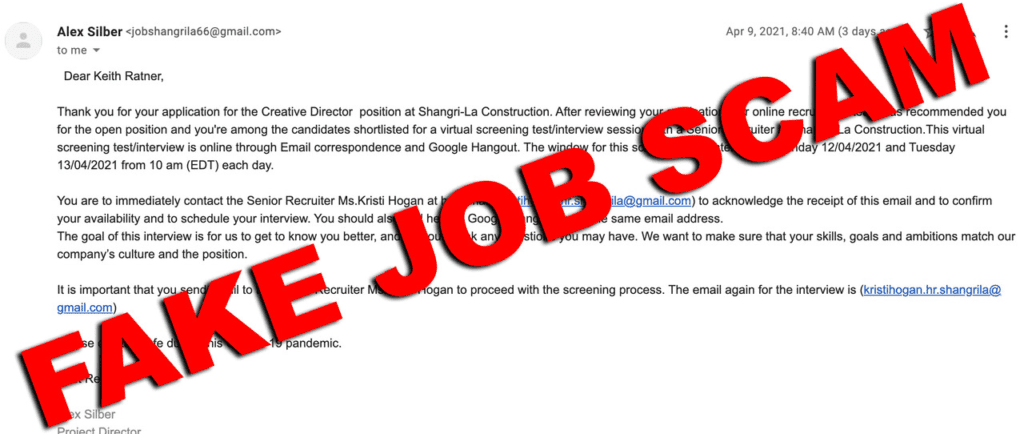Ghost Jobs
The Truth Behind Fake Job Postings
Abhishek Kundu
1/9/20254 min read


In today’s digital age, the search for a dream job often begins with online job boards, company websites, and professional networking platforms. However, not all job postings are what they seem. Ghost jobs, or fake job postings, have become a significant issue in the recruitment landscape, leaving job seekers chasing shadows and undermining trust in hiring processes. It is estimated that over 30-40% of online job postings may fall under the category of ghost jobs, illustrating the scale of the problem.
Below, we’ll break down the concept of ghost jobs, explore why companies create them, and provide actionable insights with live scenarios and examples.
What Are Ghost Jobs?
Definition: Ghost jobs are job postings that don’t represent actual vacancies. They might be intentionally misleading or simply outdated.
How They Appear: These postings often look like legitimate opportunities, complete with job descriptions, salary ranges, and qualifications.
Reality: Despite their professional appearance, these roles may not exist or aren’t being actively filled.
Example:
Nisha, a software developer from Bengaluru, spent weeks applying for a senior developer role at a reputed IT company. After submitting her application and attending an initial screening, she stopped receiving updates. Months later, the same job posting appeared again, but her inquiries to the company went unanswered.
Reasons Companies Post Ghost Jobs
1. Building a Talent Pool
Purpose: Companies use ghost jobs to collect resumes and build a database of qualified candidates for future hiring needs.
Why It Happens: Organizations want to be prepared for sudden project demands or anticipated expansion.
Impact on Job Seekers: Applicants invest time and effort in a process that may never lead to an actual interview.
Example:
Rohit, an HR manager, noticed a surge in applications after his company posted multiple openings for project managers. However, these positions weren’t immediately required. Instead, the company was preparing for a possible project acquisition. Rohit admitted they were "keeping options open."
2. Brand Awareness
Purpose: Frequent job postings can create the illusion of rapid growth and a thriving work culture.
Benefits for Companies: Enhances the employer brand, attracting not just potential employees but also clients and investors.
Impact on Job Seekers: False impressions lead candidates to believe the company is more dynamic than it truly is.
Example:
Kavya, a marketing professional from Delhi, noticed repeated job postings by a startup on LinkedIn. When she spoke to a former employee, she discovered the company wasn’t hiring actively but wanted to boost its online visibility.
3. Market Research
Purpose: Companies use job postings to gauge the availability and expectations of talent in specific regions or industries.
Outcome: Businesses gain insights into candidate skills, salary expectations, and demand trends without committing to hiring.
Impact on Job Seekers: Candidates feel misled, as the hiring process is often abandoned mid-way.
Example:
Manoj, an aspiring data analyst in Pune, applied for a position that required niche skills. He later found out the company was testing the market to understand how many professionals had expertise in AI-based analytics.
4. Internal Policies
Purpose: Some organizations are required to post jobs publicly before promoting internally, even if there’s no intention to hire externally.
Compliance: This ensures fairness and transparency but can mislead external applicants.
Impact on Job Seekers: Leads to wasted effort on roles that are essentially reserved for internal candidates.
Example:
Shalini, a sales executive from Chennai, applied for a senior role at her dream company. After the position was filled internally, she learned it had been a formality to meet compliance rules.
5. Human Error
Purpose: Oversights or lack of proper communication lead to outdated job postings staying online.
Common Scenarios: Jobs remain visible even after being filled or cancelled.
Impact on Job Seekers: Creates frustration and confusion among applicants.
Example:
Arjun, an engineer from Hyderabad, came across an attractive position on a job portal. When he followed up with the company, they informed him the job had been filled months ago, blaming an oversight in updating the listing.
How Ghost Jobs Affect Job Seekers
Time and Energy Wasted: Applicants spend hours customizing resumes, writing cover letters, and preparing for interviews.
Emotional Toll: The repeated rejection or lack of response can erode confidence and create unnecessary stress.
Financial Impact: Traveling for interviews or paying for certification courses for non-existent roles can result in financial losses.
How to Identify Ghost Jobs
Red Flags to Watch For
Vague Job Descriptions
Lack of clear responsibilities, qualifications, or role-specific details.
Example: A posting for a "marketing expert" that doesn’t specify the industry or required skills.
Continuous Reposting
Jobs that reappear frequently on portals without being filled.
Example: A "finance manager" role in Mumbai being posted every two months by the same company.
No Clear Hiring Process
Companies that fail to respond to applications or provide updates after interviews.
Example: Submitting applications to a multinational corporation only to receive an automated response with no follow-up.
Unrealistic Requirements
Listings that demand excessive qualifications or skills for a basic role.
Example: A junior developer position requiring 10+ years of experience in multiple programming languages.
What Can Job Seekers Do?
1. Focus on Verified Opportunities
Prioritize job postings on trusted platforms or direct company websites.
Use LinkedIn to verify connections who work at the company.
2. Engage Through Networking
Build relationships with industry professionals who can refer you to genuine openings.
Example: Attend events, webinars, or use platforms like Naukri or LinkedIn to connect with HR professionals.
3. Research the Company
Look for employee reviews and hiring practices on platforms like Glassdoor.
Example: Anil avoided a ghost job after discovering negative reviews about fake hiring processes at a startup.
4. Ask Specific Questions
During initial conversations, inquire about the hiring timeline, the reason for the vacancy, and the team structure.
Example: Priya avoided a dead-end role by asking detailed questions about the company's hiring goals.
What Can Companies Do?
Transparency in Hiring
Clear Job Descriptions
Ensure listings are detailed, realistic, and updated.
Honest Communication
Inform candidates about the hiring process and provide feedback promptly.
Limit Ghost Listings
Post jobs only when there’s an actual vacancy or clear intent to hire.
Impact of Ethical Hiring
Builds trust and improves the company’s reputation in the talent market.
Attracts higher-quality candidates who feel confident in applying.
Ghost jobs reveal the complexities of the modern job market. While they may serve strategic purposes for companies, they come at a significant cost to job seekers. By recognizing the signs of ghost jobs and adopting a proactive approach, candidates can navigate the job market more effectively. Simultaneously, companies must ensure ethical hiring practices to foster trust and credibility in their brand.
In the end, transparency is key—both for organizations and individuals striving to build meaningful professional connections.
Visit us for more - www.atsresumewriting.in
Email: theresumebuilderindia@gmail.com
LinkedIn: https://www.linkedin.com/in/abhishekkunduresumewriter/
Expert in
Professional Resume Writing Company in Kolkata, West Bengal
Professional Resume Writer in Kolkata, West Bengal
ATS Resume Writing in Kolkata, West Bengal
GET IN TOUCH
theresumebuilderindia@gmail.com
+91 89813 60947
© 2015. All rights reserved by Abhishek Kundu Resume Writing Co.
abhishek@atsresumewriting.in
